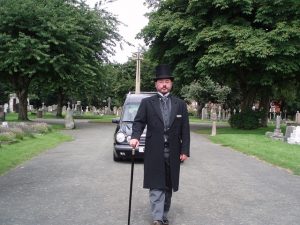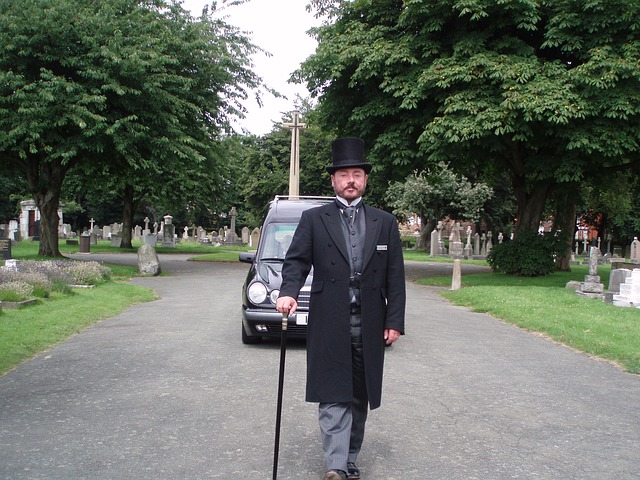 When it comes to funeral services, whether typical burials or cremation services, funeral directors are needed. These professionals basically arrange funerals. But what does that mean, exactly? How do funeral directors help people get through losing their loved ones?
When it comes to funeral services, whether typical burials or cremation services, funeral directors are needed. These professionals basically arrange funerals. But what does that mean, exactly? How do funeral directors help people get through losing their loved ones?
While they can be stressful, painful and even scary, funerals are important ceremonies. Not only do they let the ones left behind properly grieve, but they also honour the life of the deceased. They can be very emotional processes, so the surviving family and friends need support and guidance to make it through. That’s where funeral directors come in. Aside from arranging funerals, they make sure people can navigate the deaths of those dear to them by fulfilling all their duties, some of which go beyond what most people think funeral services involve.
Read on to discover the 5 duties of funeral directors that make it possible for them to give people the support and guidance they need to handle the deaths of their dearly departed.
Funeral Services Planning
A funeral service can be pretty complicated to arrange. As we already mentioned, there’s more to it than many people think. For example, what type of funeral service would you like to have?
There are 3 types of funeral service you can choose from:
A funeral, where you’ll have a service before the burial or cremation of your loved one’s body.
A memorial service, where you’ll have a service after the burial or cremation.
A graveside service, which is just like a typical funeral except it’s held right on the gravesite.
No matter what type of funeral service you choose, ask the funeral director you’d hire for advice on the right location for it (ex: church, funeral home or synagogue) and, if it’s appropriate, the burial.
Handling the Paperwork
Several documents are needed to arrange a funeral service, including:
- The deceased’s birth certificate
- His or her marriage certificate, military discharge papers or funeral pre-need plan papers
- The deed to his or her cemetery property
- His or her life or funeral insurance policies
- The names of all of his or her surviving relatives along with their locations of residence
You don’t need to handle these all by yourself. The funeral director will do it for you. Just make sure you provide all the necessary documents to him or her when you meet.
Preparing the Bodies
Funeral directors are also called undertakers or morticians. That’s because part of their job is to prepare the dead for burial. In other words, they’re also responsible for embalming the bodies.
Embalming refers to the process of temporarily preserving bodies to make them suitable for transportation and public viewing. Since ensuring this is very important for funerals, most funeral directors are trained, licensed and practicing embalmers.
Organizing the Wakes
Wakes are traditional Catholic ceremonies where the mourners can gather, offer one another condolences and share their grief in a less-formal environment. They are usually held at the deceased’s home with his or her body present in a casket. But they can now be held at a more convenient location, like a funeral home, with a picture of the deceased on display instead.
Your funeral director can organize your wake for you if it’s going to be too big for you to organize on your own or that you’re not having it at your deceased loved one’s home and need help organizing it properly.
Obituary Notice Placement in the Local Newspapers
Aside from the funeral service itself, an obituary is another great way to honour your loved one’s death. It tells his or her story to the world, including where he or she had been and what he or she had achieved.
There’s more than a few steps to placing an obituary in the local newspapers, and they differ from each one. Fortunately, your funeral director can take care of it for you.
With one less thing to worry about, you, your family and friends can focus on not only grieving the death of your loved one but also honouring it by giving him or her the proper funeral he or she deserves.


